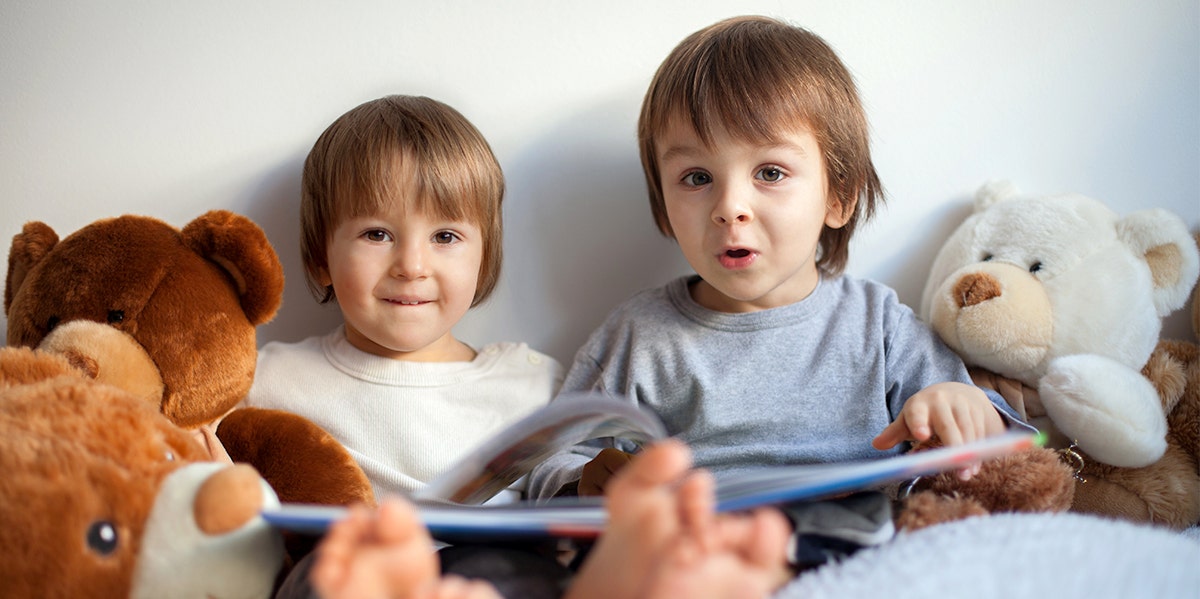What Happened When I Let My Kids Punish Themselves For A Week
I wasn’t going to punish them. They were going to punish themselves.
 Tomsickova Tatyana / Shutterstock
Tomsickova Tatyana / Shutterstock The first clue that my two boys were hitting each other on the head with sticks was the pained wailing that erupted from the front yard, followed by the overlapping sounds of angry sobs approaching the front door.
There they were, each holding their head, each red-faced, each eager for justice. It was time for some disciplinary action. But I had a new plan, and one I hoped would put the brothers on the same team.
I wasn’t going to punish them. They were going to punish themselves.
The idea might sound a little absurd, but there was sound reasoning behind the idea. Discipline handed down on high from a parent doesn’t really give a child any agency. Parental punishment is an act that is being done to them against their will.
But, what if they were responsible for establishing their own consequences to antisocial behavior? They would have nobody to complain to or blame but themselves. And because the consequences were self-imposed, born from their own brain, they might hold them in their minds in a way that was more real and present. In short, I was trying to force a path to literal self-discipline.
There was really only one hitch: I did not know if they would be fair or not. It was a gamble with a 5-year-old and a 7-year-old. There’s a reason we don’t let kids vote. But I’d never find out if I didn’t try.
The boys stood in front of me with tears washing clean tracks on their dusty little faces. I shut down their immediate attempts to assign blame, explaining patiently that they’d both been injured and it would be a judicial draw from my perspective.
“But I don’t want any more fighting,” I explained, kneeling in front of them. “If you do fight, again, what should the consequence be?”
The five-year-old was uninterested in this particular line of questioning and went back outside, the problem seemingly resolved for him. His brother looked over my shoulder for a couple of seconds of quiet thought.
“You could take away our TV for the rest of the day,” he said finally.
“Alright,” I said. “That’s what will happen. Now go play.”
He did. And there was peace for the remainder of the afternoon.
I was pleasantly surprised, but also wary. It could be a fluke. After all, the little brother had not participated. Still, the proposed consequence was more than fair given how much my children (well, all children) love television.
The next opportunity to give the self-imposed consequences a try came a few nights later. The boys had been put into bed, but they began bickering and calling their mother and me into the room, all of which was against the rules. I came in and this time made it a point to engage the younger brother, who seemed to be the biggest perpetrator.
“You know the rules,” I said kneeling by the bottom bunk. “If you keep this up, what do you think your consequence should be?”
“I don’t know. I don’t want a consequence,” he said.
“Well, you have to have one, so think of something or I will,” I replied.
“You can give us candy,” the 5-year-old said. Then he saw my look and started chuckling. “You could pee in our bed.”
That seemed a bit extreme, but I knew he was potty-talking for laughs. I wasn’t having it and he wasn’t willing to participate in my experiment. So I had to result to the standard punishment, removing the nightlights, one by one, for each infraction. That worked. As usual. But I wasn’t ready to give up on my youngest.
The next chance I had to approach the 5-year-old regarding consequences came after he bit his brother. Instead of placing him in time out, which would have been the standard punishment, I asked him what he could do to make it better. I explained to him that it had to be something that requires effort on his part.
“I could build my brother a lego submarine,” he said cautiously.
“You mean like that one you made the other day? Great!” his brother replied.
“But that will be fun,” the 5-year-old said.
I explained to him that point was not to make him feel bad but to make it up to his brother. I told him the consequence was about coming together and making amends. I’m not sure he got it, but he did start building as his brother sat by, watching anxiously and making suggestions. They didn’t fight for the rest of the day. It was beautiful.
I was surprised that my boys could be so fair. I was further surprised that they seemed to have a sense of justice that made sense (when they wanted to). Will I continue to give them the opportunity to choose their own consequences going forward? I think I will in cases of conflict.
Because what we all learned in the post-bite Lego building is that making amends does not have to be painful. When we make things up to one another, it’s almost better if the consequences of our behavior allow us to mend through bonding.
I’m okay with that. Seeing two boys make up after fighting through play they chose to engage is far better than having a crying child isolated on a step in time-out. Particularly if the results are the same: peace.
Patrick A. Coleman is a writer and editor for Fatherly, he focuses mostly on research-based parenting advice
